Yes, nuclear weapons are immoral. They’re also, practically speaking, useless.
By Ward Hayes Wilson | September 19, 2023
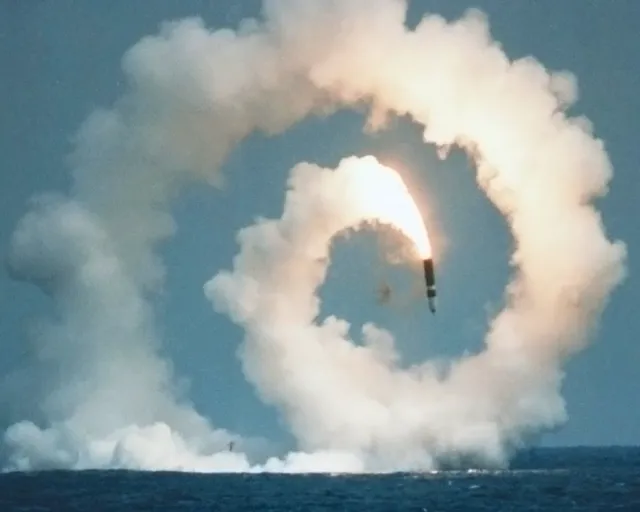
Almost everyone who works actively against nuclear weapons is, at some level, appalled by the immorality of nuclear weapons. This makes sense because the indiscriminate killing of children, grandparents, people with disabilities, and a host of other ordinary folks is appalling.
As a result, the first argument that almost all activists reach for is moral. They bring forward hibakusha to put a human face on the immorality. They talk about the indigenous people who suffered during the mining and production of nuclear weapons. They show graphic pictures of the destruction, the burns, the radiation sickness, and other catastrophic damage done by the bombings. They say, in effect, “Look at the immorality!” They sometimes point to it with a hint of outrage in their voices. How can people not be moved by these horrible, immoral acts?
And yet here we are, 78 years later, in the midst of a second nuclear weapons arms race. Every nation that possesses nuclear weapons is either expanding or upgrading its nuclear arsenal. How can this be?
It seems undeniable, after the better part of a century has passed, that moral arguments are not enough to eliminate nuclear weapons. When a strategy fails for 78 years, it’s probably time for a rethink.
I believe most people—including national leaders—hesitate to eliminate nuclear weapons not because they are heartless, or lack any sense of morality, or are idiots, but because they believe, for some reason, that nuclear weapons are necessary. After all, people often set their moral feelings aside when they believe their survival is at stake.
In the case of nuclear weapons, many people believe that nuclear weapons are such powerful weapons that they can guarantee a country’s safety. Therefore it makes sense that most countries secretly want such powerful weapons, and as a consequence, nuclear weapons will always exist. They are such desirable weapons, in other words, that even if you could ban them, someone would inevitably build an arsenal in secret. So it’s impractical to even think about eliminating them.
If this analysis of how people feel is right, then there are, in fact, two parts to the nuclear weapons elimination equation: morality and necessity. You can only solve the equation if you take on both parts. But you have to solve the parts in the right sequence. Before you can move people with moral discourse, you have to first remove the roadblock in their heads that tells them that their country must have nuclear weapons to keep them safe.
The key to eliminating nuclear weapons, then, is to start with the practical consideration. Make a case that nuclear weapons could reasonably, realistically be eliminated, neutralize that part of the equation, and the morality argument falls like a hammer blow.
“But Ward,” a devil’s advocate might argue, “there are no practical arguments for eliminating nuclear weapons.” Well, actually, there are. A lot of them. Let me point out just three.
First, you may have noticed that when Vladimir Putin threatened to use nuclear weapons again and again in Ukraine last fall, a number of establishment sources suddenly spoke up, making the case that nuclear weapons actually aren’t very good weapons. The New York Times, The Institute for the Study of War, and even Gen. David Petraeus all argued that using nuclear weapons on the battlefield wasn’t very militarily useful.
And if you look back over past wars, military commanders have repeatedly turned away from using nuclear weapons—not because of moral concerns, but because of practical doubts about the military value of the weapons.[1]
It has been an open secret in Washington for decades, apparently, that battlefield use of nuclear weapons was militarily inadvisable. When President George H. W. Bush ordered the removal of all but a handful of 7,000 tactical nuclear weapons from Europe in 1991, there was no open revolt among military officers. Apparently, they were fine with the decision. So there is a good deal of evidence, based on the advice of military officers, that nuclear weapons aren’t such great weapons.
Which brings us to another argument: What about using nuclear weapons not on the battlefield but against an enemy’s homeland? Well, if your adversary also has nuclear weapons, that option is, if anything, worse. When your adversary strikes back, your country will be devastated. It is clearly a suicidal option. And if your adversary doesn’t have nuclear weapons, it’s not war, it’s genocide.
Finally, many people argue that nuclear weapons are important because of nuclear deterrence. But even a 12-year-old can effectively show that deterrence is fatal over the long run. After all, human beings are fallible, aren’t they? And human beings play a critical role in nuclear deterrence. Human beings make the threats, evaluate the threats, and decide how to respond. If human beings are prone to folly—and we are—and if human beings run the deterrence process, then nuclear deterrence is inherently flawed. It will fail. Over the long run it cannot be safe. Eventually, human failure will lead to a catastrophic nuclear war.
Moral arguments are powerful in the fight against nuclear weapons. But a roadblock prevents moral arguments from working. In fact, it causes them to boomerang and actually turn people off. But if you’re willing to argue against nuclear weapons with a two-step process—first showing that the necessity argument is false and only then arguing that the weapons are horrible and immoral—there’s a clear pathway to elimination.
Notes
[1] Korea and Vietnam are covered in John Lewis Gaddis, The Long Peace: Inquiries into the History of the Cold War (New York: Oxford University Press, 1987) p. 119 and 125. “The outcome of these investigations was not particularly encouraging. Army Chief of Staff General J. Lawton Collins expressed himself as ‘very skeptical’ about the military advantages; Chinese and North Korean forces were deeply entrenched along a 150 mile front, and recent bomb tests in Nevada had proven ‘that men can be very close to the explosion and not be hurt if they are well dug in.’” The Gulf War comes from Colin Powell, My American Journey: An Autobiography, (New York: Random House, 1995), pp. 485-6. “I told Tom Kelly to gather a handful of people in the most secure cell in the building to work out nuclear strike options. The results unnerved me. To do serious damage to just one armored division dispersed in the desert would require a considerable number of small tactical nuclear weapons. I showed his analysis to Cheney and then had it destroyed. If I had had any doubts before about the practicality of nukes on the field of battle, this report clinched them.”
Together, we make the world safer.
The Bulletin elevates expert voices above the noise. But as an independent nonprofit organization, our operations depend on the support of readers like you. Help us continue to deliver quality journalism that holds leaders accountable. Your support of our work at any level is important. In return, we promise our coverage will be understandable, influential, vigilant, solution-oriented, and fair-minded. Together we can make a difference.
Keywords: deterrence, nuclear morality, uselessness of nuclear weapons
Topics: Nuclear Risk, Nuclear Weapons






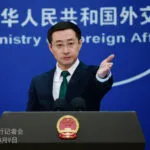
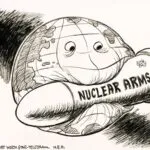

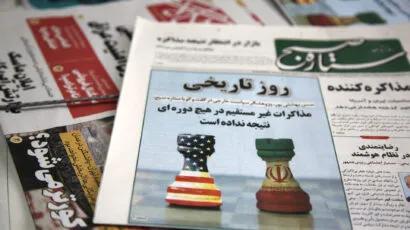





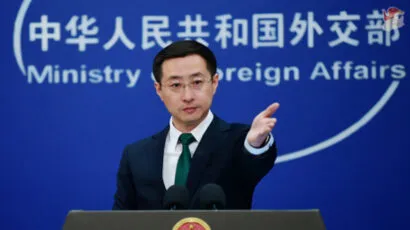
This is a good take and I agree that appeals to morality are failing in this, as well as other global issues like ecological collapse. I wish it was a bit longer and explained in detail why nukes aren’t practical on battlefields. It seems to me that they’re infeasible to use simply because one detonation would set into motion an unpredictable and likely escalatory series of events leading to horrific outcomes on every side (and for neutral parties as well). It also ignores the necessity of good-faith negotiations for mutual disarmament. In the absence of universally-legitimate international mediating organizations I… Read more »
Well, if your adversary also has nuclear weapons, that option is, if anything, worse. When your adversary strikes back, your country will be devastated. It is clearly a suicidal option.But even a 12-year-old can effectively show that deterrence is fatal over the long run. Isn’t the first quote acknowledging nuclear weapons provide deterrence? Yes, in the long term, it’s counter-productive. But in the short-term, as long as my enemy has nuclear weapons, I need to as well. My enemy does the same calculus. Ideally, we’d both give them up, and both sides know it, but neither is willing on their… Read more »
The B61-12 bomb delivered by the F35A stealth jet is the only effective weapon for destroying Deeply Buried and Hardened Targets. F35A’s are linked by laser based networks, potentially all the way back to POTUS. Several scenarios related to the fog of war are eliminated. This replaced the inaccurate multi megaton surface burst weapons that are cause much more collateral damage. The F35A is also capable of rendering enemy defenses unable to counter a bomb open to attack while dropping through the air for as long as 50 seconds. This weapon is the ultimate deterrent for enemy DBHT. Looking at… Read more »
Good luck on your book! I will keep my fingers crossed that people across the globe become inspired. I rather like what Carl Sagan had to say about MAD. “Mutual assured distruction is like two implacable enemies waist deep in gasoline, one with five matches and the other with seven matches a situation that if it wasn’t so sad it would be laugable”.
Seems reasonable, but for me this argument can’t be made without stating that all weapons designed to kill humans are immoral. If I had an enemy, and it was okay by society for him to have a weapon, then I’d want one too. Preferably a more powerful one. So we have to be against all violence, not just nuclear violence.
Of course killing people is immoral… in most cases. If a wild or crazy man breaks into your house and attempts to kill your wife and children, you better grab a weapon, even a kitchen knife, and kill this man ASAP.
The stupidity of nuclear weapons is that in this case, instead of killing the guy, you upturn a barrel of gasoline and burn the guy, the house, your wife, your children and yourself.
If there were a way to eliminate all nuclear arsenals I would gladly support it. But I see no future in global disarmament as long as the nations of the world still accept violent conflict, like the Russian invasion of Ukraine. As soon as North Korea has a strong nuclear force, I’d bet South Korea and Japan ask for stronger US guarantees of a nuclear response if they are attacked with nuclear weapons. And if they don’t feel confident in that response, what choice would they have but to obtain nuclear arms themselves. Scary future but I see no realistic… Read more »
Nuclear weapons are useful in one context. In exchange for stopping the Libyan nuclear weapons program and interfering in other countries, the U.S. promised to not overthrow the Libyan government. Once their program was gone, we overthrew the government. The lesson for North Korea, Iran and other countries is that the only way to prevent big powers from overthrowing their governments is to have nuclear weapons. We have taught the world the real importance of nuclear weapons–keep big enemies from invading you. That mistake by the U.S. government assures we will have nuclear weapons for a very long time.
Absolutely. The principle of deterrence is dismissed in a few sentences by nothing but an appeal to inevitable human fallibility. Yet if you look at history, the world has avoided a nuclear conflict since the demonstration of these weapons in 1945 and all nuclear capable nations have avoided major conflicts with one another and any major external loss of territorial, political and economic sovereignty. This is not case for the for a multitude of nations that lost or never had a nuclear program, particularly non-aligned nations. For them, history is dominated by foreign sponsored coups, color revolutions, proxy “civil wars”,… Read more »
An important comment was the major speech delivered by Admiral of the Fleet Lord Louis Mountbatten (near the end of his life) to the effect “I have been in command of NATO’s thousands of nuclear weapons. Take it from me – nuclear weapons are of no military use”. This very important speech was of course prominently reported in this magazine at the time; how can it now become neglected by this magazine?
Lord Louis Mountbatten was quite correct, from the view point of a declared nuclear weapons state and NATO member. He was demonstrably incorrect from the view point of smaller/unaligned countries wishing NOT to have their infrastructures “shock and awe” bombed to rubble, militarily invaded, State Dept /CIA “regime changed” or otherwise physically attacked, politically suborned and financially strip mined by “conventionaly superior NATO member states”. For them, a few nuclear weapons (well hidden or even possibly pre deployed?) quite useful, even when never used. Witness PRC, acquiring couple of dozen nuclear weapons made a HUGE difference in how they have… Read more »
I would put forth the argument that there are several perspectives on the usefulness of nuclear weapons. A military mind would have a more realistic understanding of how to mitigate the threat and risks of nuclear warfare. The Pandora’s box has been opened and cannot be closed. All the major powers and a few minor powers now have nuclear weapons. They can’t be wished away and they can’t be politicized away. It would take a keen insight possibly inspired by “a higher power” to determine how to get rid of nuclear weapons. Probably only when our leaders are subject to… Read more »
The war in Ukraine demonstrates the fallacy of your argument.
How? It’s all only imagined scenarios. If Ukraine would still have nuclear weapons, they could drop a bomb on Moscow, and the war would stop—that’s the reasoning, right? Or it would not stop, because if Putin would know that Ukraine has nuclear weapons, he would start with dropping a few hundred nukes on the Ukrainian cities in the first hour of the war. Possible? It surely is. That scenario was written down in all military papers of the USSR in 1960s: start the war with hundreds of nukes dropped on all key targets in Europe. Putin could just unearth those… Read more »
Good Lord – someone who understands the lessons of modern nuclear winter research!
While looking at your planet from two light years away, I see no forms of civilization. I have already proposed a path to peace which alters the common notions of sovereignty, see (https://kathleenmccroskey.substack.com/p/a-possible-path-to-peace) Meanwhile, while war is the primary tool in the human toolbox, I am calling that little blue globe The War Planet. Instead of exponentially increasing the power and type of weapons (nuclear, chemical, biological, etc.), it will take a rework of the ENTIRE human thought process (https://kathleenmccroskey.substack.com/p/a-review-of-the-great-mindshift) rather than a simple exercise in dismissing the concept of necessity or appealing to morality. “We have seen the enemy,… Read more »
People aren’t going to sit still for someone “2 lightyears away” telling them that they have to limit progress, no matter how true it is. Short of totalitarianism, people will not allow their lot to be made worse by leaders. And the idea you can change human nature by fiat is pretty risible.
It’s what I came to see once I started taking a look at the conduct of war through the ages. If your intention is to bring your opponent to his knees and make peace, you want a military that can graduate its response to the enemy’s actions. That is, you follow the self-evident dictum that war is politics by other means. A nuclear weapon is an absolute weapon. There is very little graduation in its actions. You drop a 15-kilton bomb on Hiroshima, you destroy the entire city. It’s why the US didn’t follow suit and build a yet bigger… Read more »
The jury is permanently out on whether nuclear weapons deter. There is no proof they do nor is there proof they dont although they certainly self deter viz: NATO reluctance to get directly involved in Ukraine, but one thing that the powerful anti nuclear movement does do is hold nuclear weapon powers accountable for their actions and less liable to be irresponsible. But the greatest threat so long as nuclear weapons exist is a nuclear war by misinterpretation of intelligence or a trigger happy commander believing they are under attack.
Ward Wilson does not mention the primary reason we are not willing to abolish nuclear weapons – they support our (delusions of) empire. Daniel Ellsberg documented this quite clearly in his “The Doomsday Machine,” pp 319-328. Because our economy worships money, we are willing to take great risks, including nuclear war, to make more money.
Ward, as the discussion makes clear, the stubborn belief in nuclear deterrence as a rational basis for global security will not be overcome without employing the information that nuclear weapons states have been fighting tooth and nail to keep from public view for over a decade now: Modern research on nuclear winter.
https://www.nature.com/articles/s43016-022-00573-0
There are many articles looking casually at the necessity for nuclear weapons. Golly, why DOES the US require so many arms and force deplyment capabilities. What is the purported ‘necessity” ? “National security” is the purported ‘necssity’. But the obvious reason is simple irrational paranoia and corruption. The US is a fearful paranoid country and the arms industry is happy to serve. There has never been any ‘necessity’ for a huge military with 800 overseas bases. The Congress knows all this. Congress is totally BORED with the subject. It votes every year to give more money than the arms industry… Read more »
Might be late to the party, but this is an awful take on nuclear weapons. Arguing that they are useless because Putin is reluctant to use them while ignoring the fact, that NATO members frequently question support for Ukraine because of the fear of potential nuclear escalation shows how shortsighted the argument is being made in this text. Also, showcasing that the US military was fine with the withdrawal of tactical warheads in 1991 and making a connection to their usefulness without mentioning that the Soviet Union at that point has ceased to exist is mind baffling. Yes, nukes on… Read more »
Nuclear weapons served Russia well in Ukraine. This without them ever being used. Not only did they dissuade a Gulf War style American intervention (which, when the real weaknesses of the Russian forces became apparent in March and April of 2022, seemed almost certain to have succeeded), but they were able to convince European and American leaders to limit their support and work to limit Ukrainian attacks across the border to Russia, for fear of Russian “red lines”. Now, 2 years later, we know that all those red lines were bluster. But there is still a worry in The West… Read more »